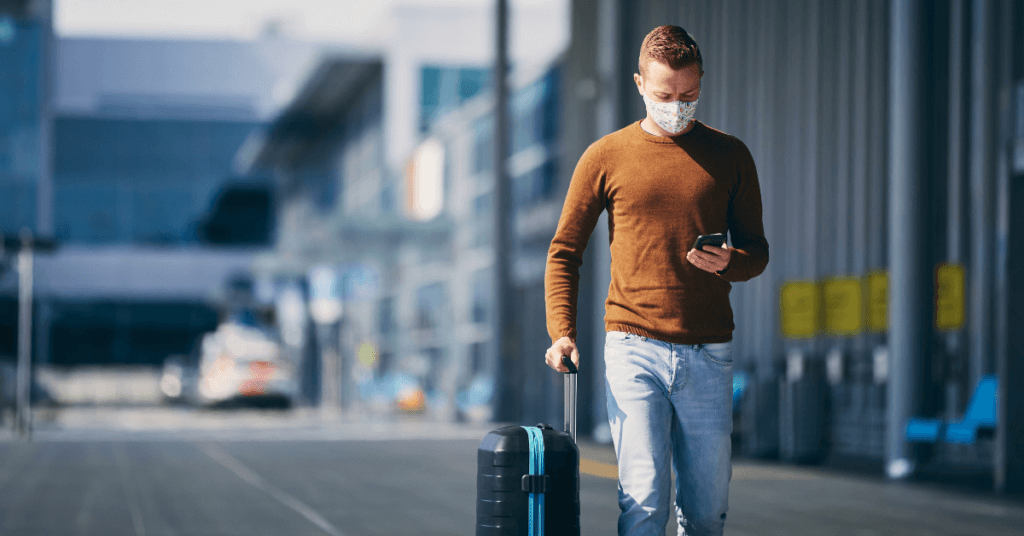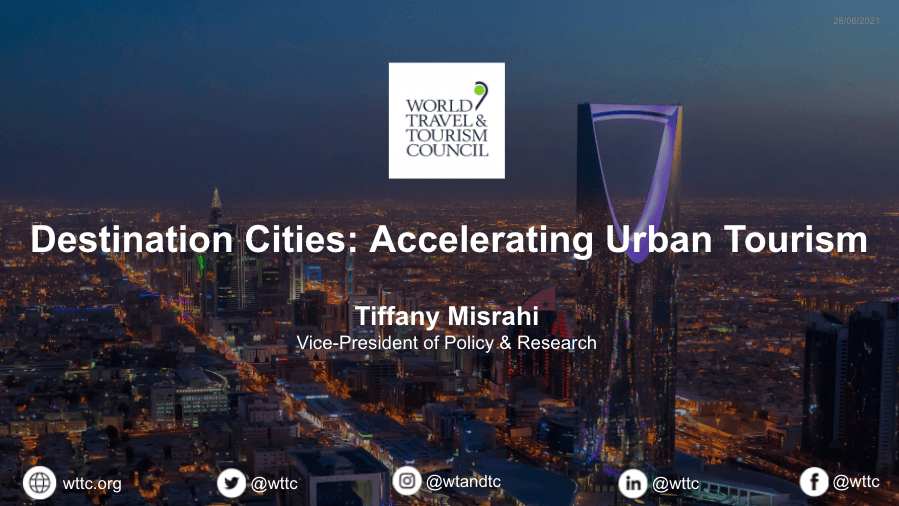
The economies of travel destinations around the globe were greatly impacted by the COVID-19 pandemic, causing a dramatic loss in city revenue and massive job losses in the sector.
The pandemic and subsequent fallout gave us an opportunity to reflect on what cities offer travelers and how to make interactions with our communities more meaningful. It showed us how valuable the travel and tourism sector truly is to the global economy. Our convening shared strategies to revitalize the sector, bringing people together as they begin to move around the globe.
In this blog, we’ll outline the pandemic’s impact on travel and tourism and how to ensure safe travel again.
The Impact of the COVID-19 Pandemic on International and Domestic Travel
International travel was devastated by the pandemic. Before COVID-19, between 2015 and 2019, one in four of all new jobs created globally were in the travel and tourism sector. The sector accounted for 334 million jobs and contributed $9.2 trillion (10.4%) to global GDP.
All regions around the world experienced significant losses during the pandemic, with the Caribbean, Asian-Pacific, and European areas seeing the most significant declines.

In the data provided in the World Travel and Tourism Council (WTTC)’s Economic Impact Report, the global travel and tourism sector during the pandemic experienced:
- US$4.5 trillion loss in revenue
- 49.1% decrease in global GDP
- 62 million jobs lost
- 45% decrease in domestic traveler spending
- 69.4% decline in international traveler spending
The travel and tourism sector could reach 2019 levels by 2022, with most lost jobs recovered, but only with an aggressive global vaccination rollout plan and if international restrictions are lifted. An international coordination approach is vital to establish a worldwide mobility framework for the safe movement of people. Destinations must rebuild trust with travelers and make them feel safe to travel once again, by implementing among other policies, strong health and hygiene protocols.
Moving Into the Future: Travel and Tourism Trends
While wanderlust is still alive, the way in which we travel has already changed. In the short term, we have witnessed a shift away from densely populated places and an increase in domestic and outdoor destination travel. Travelers are increasingly choosing places that are more rural and typically secondary locations as opposed to the “usual suspects.” These destinations need to be ready to welcome visitors as we shift into the new norm of traveling.
In this new age, health and hygiene protocols are critical and are becoming a prerequisite for many travelers to visit cities, with 69% of travelers saying that cleanliness and health measures are a critical component of a travel brand’s crisis response. Similar to having WiFi available in hotel rooms, visitors will expect certain hygiene protocols as standard. In this context, it will be important to ensure that testing is affordable and accessible to all.
Cities will need to focus on the health and hygiene of their visitors and evaluate how they’re welcoming people in a way that is inclusive of all groups. Another trend is the importance of sustainable practices in the social, emotional, and environmental areas. As noted by other speakers during the virtual convening, cities need to not only be a great place to visit, but a welcoming place to live as well.
The Move Toward Contactless Technologies
The COVID-19 pandemic proved to be an unanticipated catalyst towards digitization in the travel and tourism sector. 66% of consumers are using less cash and moving toward more contactless solutions, and they’ve come to expect this type of experience across a variety of industries. Presenters highlighted the need for a virtual travel pass that allows travelers to seamlessly travel in an airport without having to use cash or paper passes. According to IATA, 45% of air travelers are ready to shed their paper passports for digital equivalents (biometric identification).
Destinations will need to embrace the shift to digital while continuing to create authentic and emotional connections with travelers. Affordable and innovative solutions need to be created and implemented for all countries around the world.
Hope is on the Horizon for the Tourism and Travel Sector
Travel and tourism are helping bring the world back together in more ways than simply economic benefits. Tourism growth needs to be quality growth and a win for travelers, communities, businesses, and destinations.
Thank you to all the speakers and audience members who joined us in our virtual event. The City Innovators’ Forum will be hosting more events this year, so stay tuned. Let’s stay connected to keep the conversation going.
If you missed the event, you can watch the replay of the event on the City Innovators website.
To learn more about how cities are leveraging data insights to build a more inclusive and sustainable tourism economy, contact Rita Okcuoglu, Director of City Possible Partnerships, at rita.okcuoglu@mastercard.com or visit www.citypossible.com.
To find out more about working with the WTTC and becoming a member, visit their website.
Co-authored by Dr. David Ricketts, Innovation Fellow, the Technology and Entrepreneurship Center at Harvard and Tiffany Misrahi, Vice-President of Policy & Research at World Travel & Tourism Council


